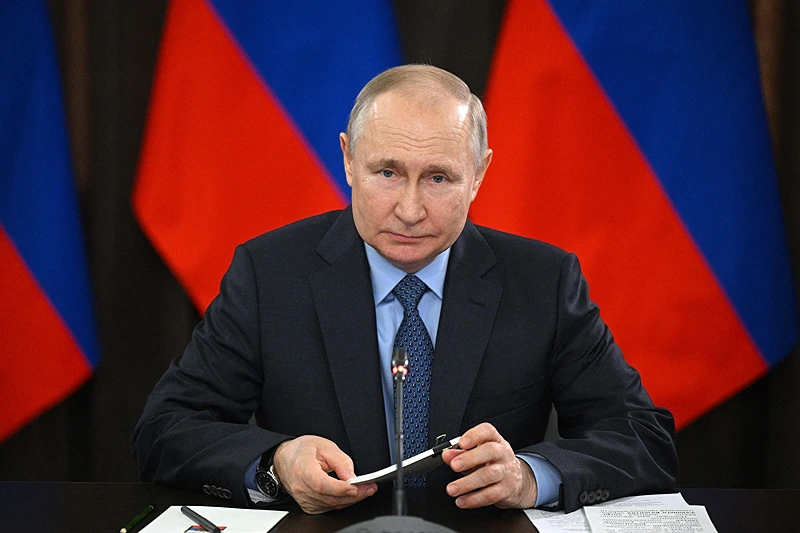
OAN Brooke Mallory
UPDATED 3:00 PM – Tuesday, April 18, 2023
Due to low birth rates, significant emigration, alarming health statistics, and the ongoing war in Ukraine, Russia is experiencing a historic population loss.
Some have referred to the crisis escalating state as a “silent war” against the country’s human resources.
Vladimir Putin, the president of Russia, has cited the country’s aging population as a major threat to national security, and the most recent war in Ukraine has not only resulted in tens of thousands of deaths among men of fighting age, but has also sparked a major migration of Russia’s younger populations.
Up to 250,000 Russian soldiers are said to have perished in Ukraine, according to estimates from Western defense authorities. Some reports also claim that up to 1 million Russians have fled their country since the conflict started, notably after Putin’s conscription order in September of this year.
However, despite the fact that hundreds of thousands of men have died since Putin’s invasion began 14 months ago, the conflict is not the primary factor contributing to Russia’s demographic challenges. Moscow has been dealing with a dwindling population for about 30 years, but according to a demographic expert, this reality is not the main issue impeding Russian societal growth.
“It’s possible for an aging and shrinking society to prosper… But Russia is not doing that,” said Nicholas Eberstadt, a demographic and economic specialist at the American Enterprise Institute.
“They have a health crisis with astonishingly high death rates for working-age men and even working-age women, and they also have a strange inability to harness their seemingly highly educated population to create knowledge and economic value,” Eberstadt said.
Experts are baffled by Russia’s high rates of infertility and mortality, particularly among men.
Eberstadt, a long-time observer of Russia’s population decline and author of the 2010 book “Russia’s Peacetime Demographic Crisis,” claims that the country’s higher rates of major killers like heart disease are caused by particular health variables including drunkenness and bad eating habits.
The expert maintained that these elements should translate to a mortality rate that is around twice that of Western Europe and not Russia’s present mortality rate, which is four times that of its Western neighbors.
“So, what’s going on? It’s almost as if Russia has managed to come up with a new formula for achieving premature death,” Eberstadt said.
According to Russian media outlet RBC, the country’s population fell by 500,000 in 2022 as more people died than were born, bringing the total to 146.45 million by the start of 2023.
The Higher School of Economics in Moscow (HSE) also predicted that due to its high rates of infertility, mortality, and shorter life expectancy, Russia will need to absorb up to 1.1 million immigrants annually for the next 80 years in order to sustain its present population levels by the end of the century.
In Russia, the life expectancy of a 15-year-old male is comparable to that of a 15-year-old male in Haiti, which is believed to be the poorest country in the Western Hemisphere that is plagued by natural disasters, a crippling economy, and extreme gang violence. The Economist published a report last month that claimed the low birth rates in April 2022 were equivalent to levels not seen since World War II.
“Since such high values of compensatory migration are impossible to achieve, we can conclude that the population is expected to decline even under the most favorable scenarios of birth rates and mortality,” according to the study’s authors.
The study ignored the significant outflow of Russian citizens since the start of the Ukraine War, as well as the number of deaths that occurred in Russia during that conflict.
“What I may think will be incalculable is how this invasion is going to affect the Russian national mood. If it leads towards a sort of a pessimism, that may have an impact on the birth rate… Already, we’ve heard that the births from last year were the lowest in decades… If that continues, maybe we’ll have our answer there,” Eberstadt concluded.
Stay informed! Receive breaking news blasts directly to your inbox for free. Subscribe here. https://www.oann.com/alerts

